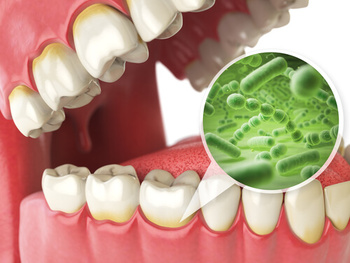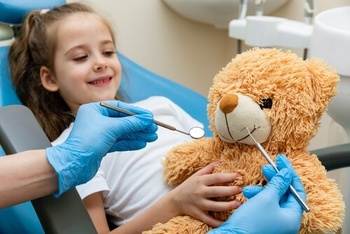It can be quite alarming to notice a sudden bad smell coming from your toddler’s mouth, especially if it seems to have appeared out of nowhere. While child’s bad breath might sound unusual, it is more common than many parents realise. This condition, called halitosis, can have several triggers, ranging from simple causes like smelly foods to more complex issues such as tooth decay or infections.
In this blog, we’ll walk you through the most common causes of sudden bad breath in toddlers, how to tell if there’s an underlying issue, and what you can do to keep your child’s breath fresh and healthy.
What Is That Smell? Understanding Sudden Bad Breath in Toddlers
When a child’s breath starts to smell bad unexpectedly, it often catches parents off guard. The first thing to know is that bad breath in toddlers isn’t always linked to poor hygiene. In fact, many underlying factors can contribute to a child’s breath suddenly smelling unpleasant.
Let’s explore the key reasons behind sudden bad breath in toddlers and how each one can be managed or prevented.
1. Poor Oral Hygiene Can Be the Culprit
How to help:
- Brush your child’s teeth twice a day with a soft toothbrush.
- Start using a tongue scraper or gently clean their tongue with the toothbrush.
- Introduce good oral hygiene habits early, even before all their baby teeth have come through.
2. Mouth Breathing and Dry Mouth
Toddlers often breathe through their mouths, especially when sleeping or if they have nasal congestion from a cold, allergy, or enlarged tonsils. Mouth breathing dries out the saliva, which normally helps to wash away bacteria. When saliva flow is reduced, anaerobic bacteria can thrive, leading to bad breath in kids.
What to watch for:
- Snoring or sleeping with the mouth open
- Constant dry lips or a dry tongue
- Post-nasal drip from allergies or colds
Encourage your toddler to drink plenty of water during the day and speak to their doctor if mouth breathing seems persistent.
3. Food Choices: It Might Be What They Ate
Some stinky foods like garlic, onions, or certain cheeses can cause temporary bad breath in toddlers. A high-protein diet or strong-smelling snacks can also leave a lingering smell in the oral cavity.
What to do:
- Try limiting smelly foods when you notice changes in their breath.
- Encourage water or milk after meals to help rinse the mouth.
4. Tooth Decay or Gum Disease
If you’ve ruled out hygiene and food, it’s time to consider your child’s teeth. Cavities, also known as tooth decay, can trap bacteria and lead to a strong, persistent odour. Likewise, gum disease causes inflammation in the gums, which can lead to bad breath in toddlers even if they’re brushing regularly.
Red flags include:
- Brown or black spots on teeth
- Swollen or bleeding gums
- Complaints of pain when chewing
A visit to a dental clinic can help diagnose and treat any dental issues early.
5. Sinus Infections or Seasonal Allergies
When toddlers suffer from sinus infections or seasonal allergies, they often have a constant flow of mucus draining down the throat, known as post-nasal drip. This mucus provides a breeding ground for bacteria, which can cause a bad smell in your child’s breath.
Symptoms to look for:
- Thick, yellow or green nasal discharge
- Nasal congestion
- Facial pressure or a cough that worsens at night
If your child shows signs of a sinus infection, see their dentist for guidance.
6. Medical Conditions to Be Aware Of
In rare cases, bad breath in children could be linked to more serious medical conditions. These can include kidney failure, diabetes, or digestive issues. For example, if your toddler’s breath smells fruity or like ammonia, it’s important to get medical advice straight away.
Though uncommon, it’s worth keeping an eye on other symptoms, such as:
- Vomiting or weight loss
- Unusual thirst
- Lack of energy
Always consult a health professional if you suspect an underlying condition.
7. Medications That Dry Out the Mouth
If your toddler is taking certain medications for allergies, asthma, or colds, they may experience dry mouth, which reduces saliva and leads to odour-causing bacteria flourishing. The result? A foul-smelling breath in toddlers.
Tips to manage it:
- Make sure your child stays well hydrated.
- Offer sugar-free chewing gum (if age-appropriate) to stimulate saliva.
- Discuss side effects with your child’s doctor.
Helping Your Toddler Maintain Fresh Breath
- Supervise tooth brushing until your child is at least six years old.
- Use a small amount of fluoride toothpaste.
- Encourage healthy snacks like apples or carrots that help clean the teeth naturally.
- Clean the tongue daily to remove bacteria sitting on the surface.
- Book regular checkups with a children’s dentist.
When to Seek Help for Your Toddler’s Bad Breath
While occasional bad breath isn’t usually a concern, sudden bad breath in toddlers that sticks around for days or worsens could indicate something more serious.
See your dentist if:
- The bad breath lasts more than a week
- It’s paired with fever, pain, or swollen gums
- Your child is showing signs of decay or infection
Prompt action helps prevent complications and ensures your child stays healthy and comfortable.
Frequently Asked Questions
- Is it normal for toddlers to have bad breath in the morning?
Yes, just like adults, toddlers can have morning breath, especially if they breathe through their mouths while sleeping.
- Can bad breath mean my child has a cavity?
Yes. Tooth decay is one of the common causes of persistent bad breath in toddlers and should be checked by a dentist.
- How often should toddlers brush their teeth?
Twice a day, in the morning and before bed, with a soft-bristled toothbrush and a pea-sized amount of fluoride toothpaste.
- What foods should I avoid if my toddler has bad breath?
Limit certain foods like garlic, onions, and sugary snacks that can worsen breath or contribute to decay.
- Should I be worried if my toddler’s breath smells fruity?
Yes, fruity-smelling breath can be a sign of an underlying condition like diabetes. See your child’s doctor as soon as possible.
Final Thoughts
If you’re unsure why your child’s breath smells bad or if you’re worried about their oral hygiene or health, speak with a trusted dental professional. For families looking ahead to maintaining bright, confident smiles as children grow older, learning more about professional teeth whitening options in Campbelltown can also be helpful. You don’t have to manage it alone.
Contact Available Dental Care today at (02) 4062 8763 or (02) 4628 0573 for expert help and advice!
References
- WebMD. (n.d.). Postnasal drip: Symptoms, causes, treatments. Retrieved from https://www.webmd.com/allergies/postnasal-drip
- Cleveland Clinic. (n.d.). Cavities (tooth decay): Symptoms, causes & treatments. Retrieved from https://my.clevelandclinic.org/health/diseases/10946-cavities
- Mayo Clinic. (n.d.). Bad breath: Symptoms and causes. Retrieved from https://www.mayoclinic.org/diseases-conditions/bad-breath/symptoms-causes/syc-20350922




